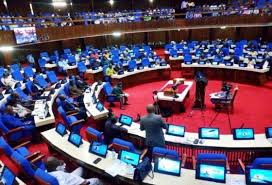By Jariatu S. Bangura

Freetown International Hospital, a leading healthcare provider in Sierra Leone’s capital, is under parliamentary scrutiny following concerns over its service charges.
Members of Parliament (MPs) have questioned the affordability and transparency of the hospital’s fees, sparking discussions about broader healthcare accessibility in the country.
Established to provide modern and comprehensive medical services, Freetown International Hospital is equipped with advanced diagnostic and imaging technology to ensure accurate and timely treatment outcomes.
The facility offers services in general medicine, surgery, pediatrics, and maternal healthcare, supported by a team of highly trained specialists.
Despite its commitment to high-quality medical care, concerns have been raised about the cost of these services and their accessibility to the general populace.
A key point of discussion was the hospital’s pricing, which some MPs argued was disproportionately high compared to the average Sierra Leonean’s living standards. “Our people are raising concerns that your services are extremely expensive compared to other facilities,” said Chairperson Hon. Bernadette Wuyata Songa. She acknowledged the hospital’s state-of-the-art technology and expertise but noted that its prices were unaffordable for most citizens.
The hospital management defended its pricing structure, explaining that it provides specialized services unavailable in much of West Africa. They also highlighted discounts offered every Wednesday and on certain procedures to improve affordability.
However, Hon. Songa remained unconvinced; suggesting that despite the hospital’s high-quality services and equipment, more consideration should be given to the financial capacity of locals. She pointed out that the hospital could potentially lower its fees, especially since its international doctors—who earn up to $2,000 a month—are paid significantly less than their counterparts in developed countries.
Another major concern raised was the hospital’s staffing composition. Of its 15 doctors, only three are locals, while the rest are international staff. This imbalance led to questions about the hospital’s commitment to developing Sierra Leone’s healthcare sector. “Do you have plans to train local doctors and build up local expertise so that eventually Sierra Leoneans can perform these surgeries?” one MP asked.
The hospital management admitted that there were no current plans for succession training but assured MPs that they would work towards creating more opportunities for local medical professionals.
One MP, who identified herself as a regular patient at the hospital, called for better transparency in pricing. She shared an experience where she had been quoted vague prices for medical tests, adding to frustrations over unclear billing practices.
MPs also discussed the hospital’s facilities, acknowledging improvements while stressing the need for further investment, particularly in the emergency department. One lawmaker urged the hospital to invest in a permanent structure instead of continuing to rent its current facility.
In response, the hospital’s management committed to addressing the concerns raised. They assured the committee that they would improve pricing transparency and documentation while revisiting their pricing strategy to ensure affordability for the general public.
As the inquiry continues, MPs reiterated the importance of making healthcare services more affordable for Sierra Leoneans. They set a deadline for the hospital to provide documentation and evidence regarding pricing, staffing, and infrastructure.
The session ended on a constructive note, with the hospital promising to enhance healthcare in the region while ensuring its services remain within reach for all citizens.


